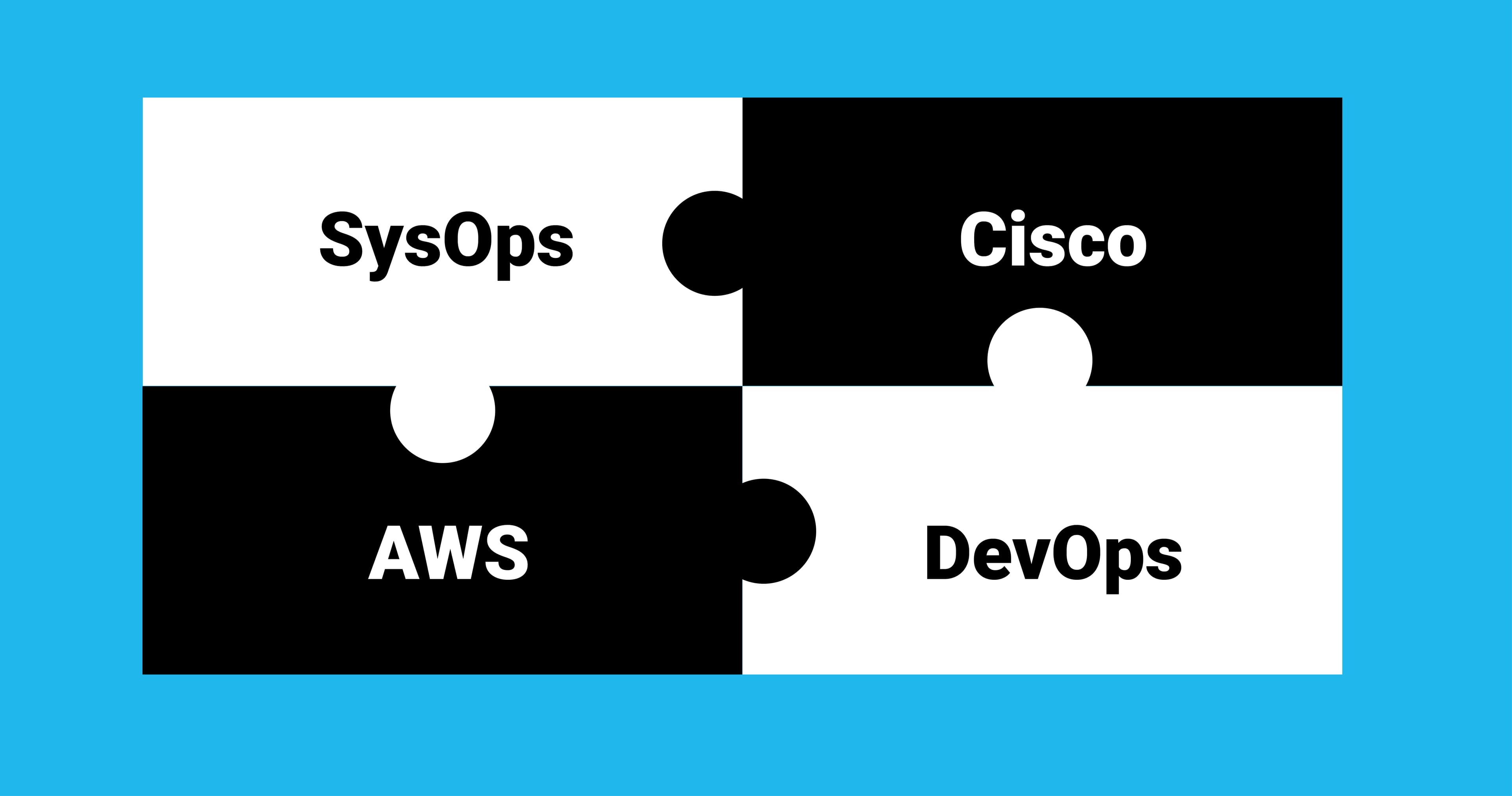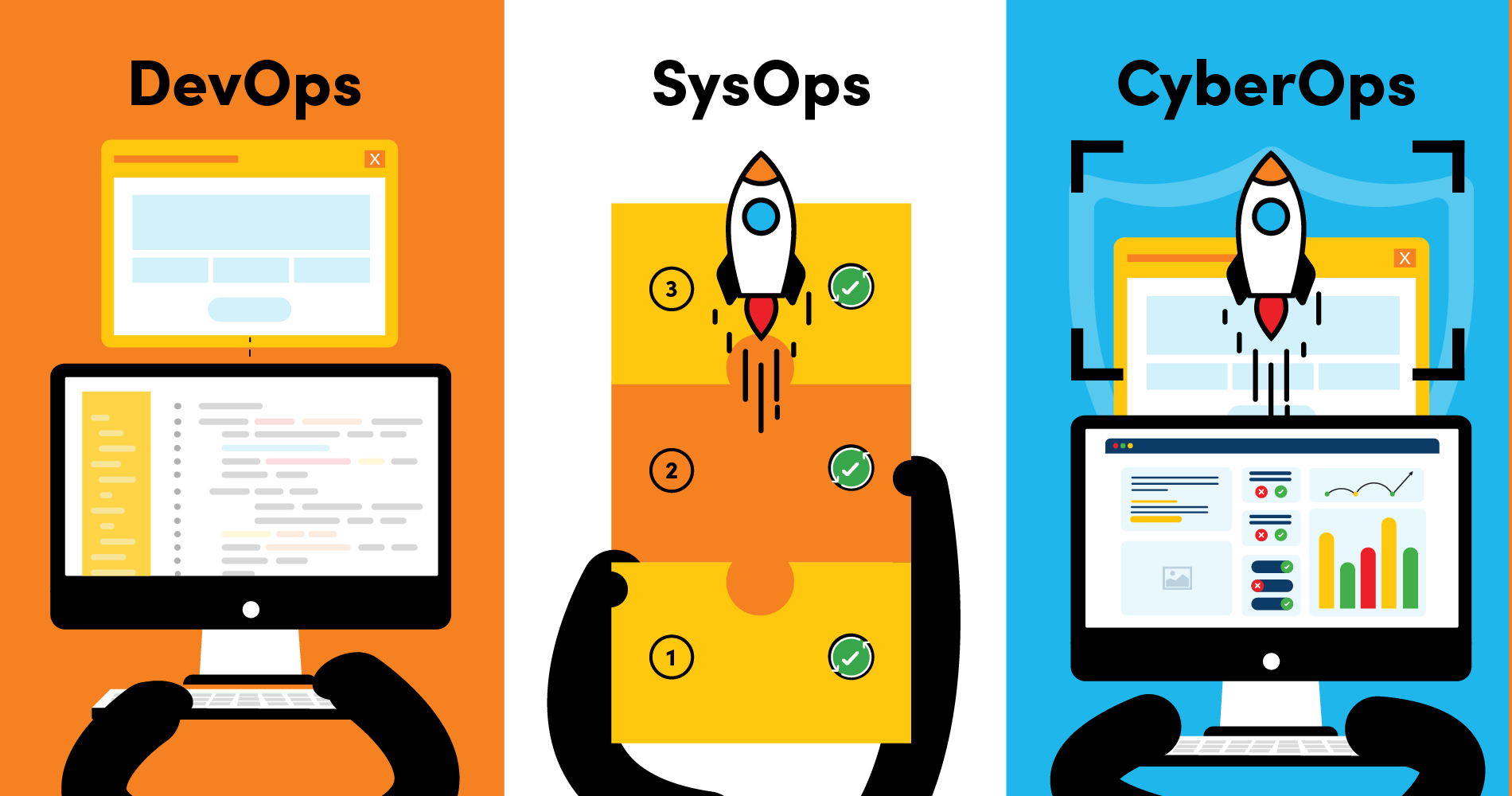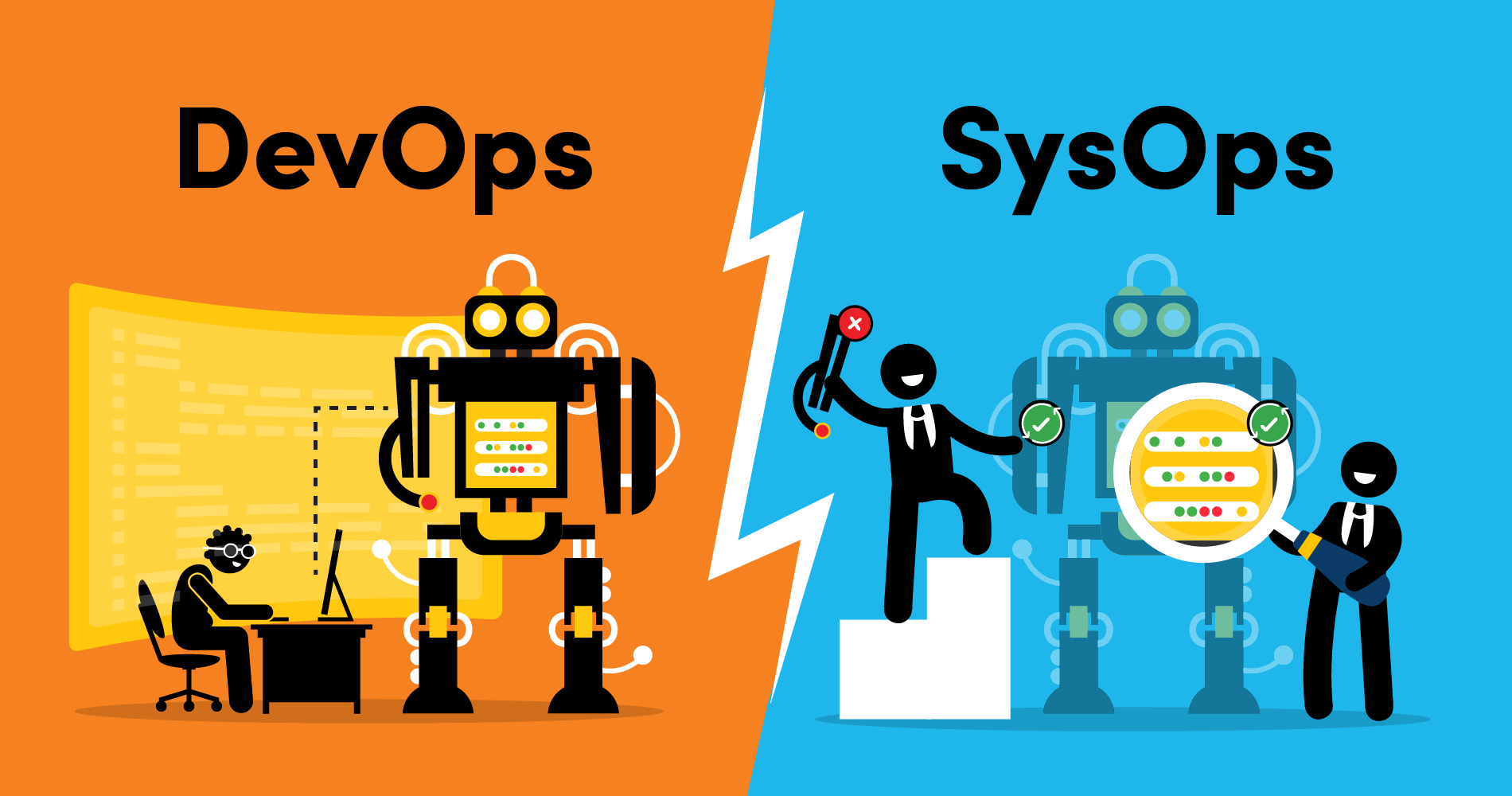Navigating the World of SysOps: A Deep Dive Into AWS, Cisco, and DevOps

Mastering the cloud is key to your organization's success. But with so many platforms and certifications out there, where do you start? In this article, we'll explore three critical options—AWS SysOps, Cisco CyberOps, and the differences between SysOps and DevOps.
You'll learn the core responsibilities of SysOps engineers, the value of Cisco's cybersecurity focus, and how SysOps and DevOps work together to deliver robust systems.
We'll also discuss the most in-demand skills so you can upskill your team. By the end, you'll have the insights you need to develop an effective cloud operations strategy. Let's get started!

SysOps: An Overview of Critical Cloud Operations
Anyone in IT knows that SysOps, or Systems Operations, is a crucial role. In short, SysOps professionals monitor and maintain an organization's IT infrastructure and systems. With the rise of cloud computing, the SysOps role has become even more important.
AWS SysOps
AWS SysOps Administrators are responsible for deploying, managing, and operating systems and services on the AWS platform. They have expertise in AWS services like EC2, S3, and VPC to build and deploy applications. AWS certifies SysOps Admins to show they have the technical skills and experience to operate AWS-based applications.
Cisco CyberOps
Cisco also offers a certification for SysOps, called CyberOps Associate. This focuses on detecting and responding to cybersecurity threats using Cisco technologies. CyberOps Associates can monitor networks, identify vulnerabilities, and mitigate threats. They work to protect an organization's data and systems.

The SysOps vs. DevOps Debate
Some argue that SysOps and DevOps are quite different. SysOps teams focus on infrastructure and operations, while DevOps teams emphasize collaboration between developers and IT operations.
However, others see significant overlap and believe SysOps professionals should adopt a DevOps mindset. At their core, both roles aim to optimize development and deployment of software and systems.
In today's tech landscape, SysOps and related roles like DevOps have become indispensable. As more companies adopt cloud platforms and DevOps methodologies, demand for these skilled professionals will only continue to grow. For anyone interested in IT operations, specializing in SysOps or DevOps is a smart career move.
SysOps vs DevOps: Where They Intersect and Where They Differ
SysOps and DevOps professionals play different but complementary roles in managing infrastructure and application deployment. As a SysOps engineer, your focus is on maintaining the servers, networks, and systems that keep infrastructure up and running. DevOps engineers, on the other hand, are more concerned with using automated tools to continuously develop, test, and deploy software.
While SysOps and DevOps intersect at the infrastructure level, their day-to-day responsibilities can differ quite a bit. As a SysOps engineer, you’re tasked with server provisioning and configuration, network monitoring, and patching systems. DevOps engineers, however, prioritize building CI/CD pipelines, containerization, and automation to support faster, more frequent deployments.
With that said, in many organizations, the lines between SysOps and DevOps are blurring. SysOps engineers are adopting DevOps practices like infrastructure as code and automation. Likewise, DevOps engineers are gaining a deeper understanding of systems and networking. A strong partnership between SysOps and DevOps is key to delivering a robust yet flexible infrastructure.
At their core, SysOps and DevOps share some similar goals: enhancing system reliability, optimizing resource utilization, and improving deployment velocity. But they achieve these goals through different means and areas of focus. SysOps takes a system-centric view, ensuring infrastructure components are running efficiently. DevOps approaches the challenge through an application-centric lens, using automation and tooling to accelerate development and deployment.
While the debate around SysOps vs DevOps continues, most experts agree they should be complementary disciplines. SysOps provides a stable foundation for DevOps to build upon.
And DevOps helps SysOps adopt more agile, scalable processes. Working together, SysOps and DevOps can achieve infrastructure excellence and app deployment bliss. The key is finding the right balance of responsibilities and handoffs between these critical tech operations roles.

Why Partner with Us
Deep Expertise
We have over decades of experience delivering custom cloud solutions and managed services. Our engineers are highly certified across platforms like AWS, Azure, and Google Cloud. We stay on the cutting edge of new services and best practices to provide the most innovative solutions.
Flexibility and Scalability
As a service-oriented company, we are structured to flexibly scale our teams and services to meet your needs. Whether you need an extra set of hands for a short-term project or long-term managed services, we have you covered. Our teams can work as an extension of your own to provide as much or as little support as you need.
Cost Savings
By partnering with us, you gain access to our deep technical expertise and experience without the overhead of hiring additional full-time staff. We work as an extension of your team to help you optimize your cloud spend and take advantage of money-saving services.
Peace of Mind
When you engage our managed services, you gain peace of mind knowing your systems and infrastructure are in good hands. Our teams monitor your environments constantly and are ready to respond in the event of any issues. We handle tasks like log monitoring, security patching, and backup management so you can rest assured your data and applications are secure and available.
Choosing to partner with us means gaining a trusted advisor and extension of your team. We bring technical depth, flexibility, cost savings, and peace of mind. Our goal is to serve as a long-term partner in managing your infrastructure and workloads so you can focus on your core business initiatives. We would appreciate the opportunity to show you how we can support your needs and take your cloud operations to the next level.
Conclusion
By now, you've got a solid grasp of SysOps in the cloud and on-prem worlds. AWS, Cisco, and DevOps each have their place. The key is finding the right balance for your organization. Focus on delivering value to customers. Master the art of system operations, and you'll be ready to face any challenge.
The path won't always be easy, but you've got this. Just remember - it's about the journey, not the destination. Keep learning, keep improving, and enjoy the ride. You got this!
Your business has its own story—let’s write the next chapter together. Reach out, and we’ll create a solution that fits your exact needs.